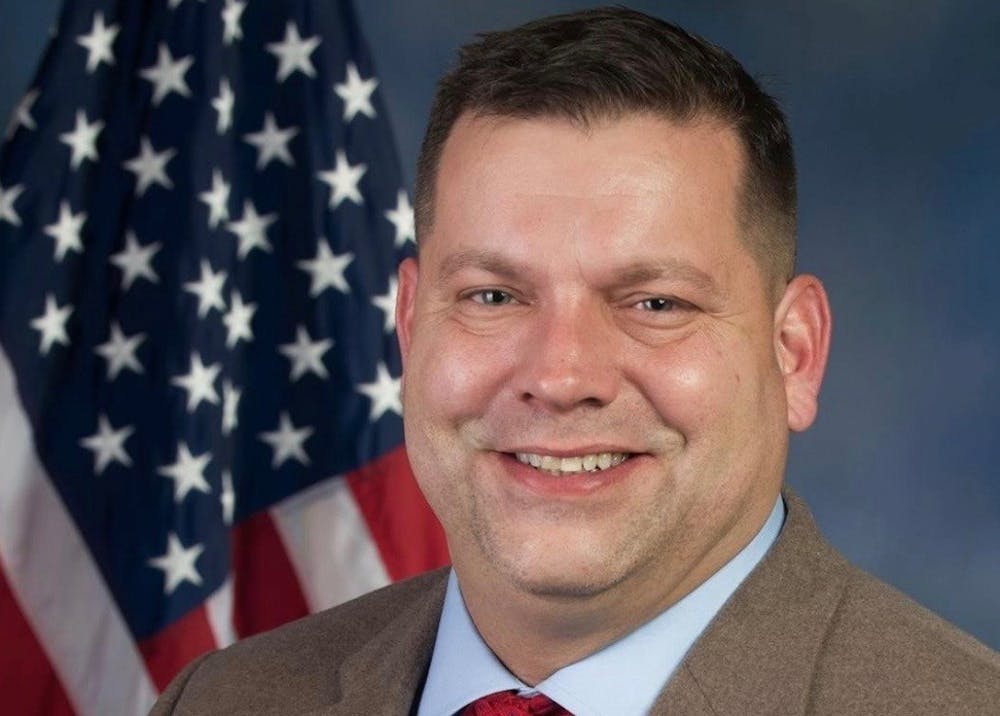The U.S. House Committee on Ethics published a report Wednesday that detailed allegations against former Republican Virginia Fifth Congressional District Representative Tom Garrett, whose two-year term ended Thursday. The investigation began in June and concluded that Garrett violated House regulations and federal law by using his employees for unofficial work and personal errands.
Garrett announced in May he would not seek reelection, citing alcoholism and the need to recover and spend time with his family. Republican candidate Denver Riggleman was elected to replace Garrett and began his term in the 116th Congress Thursday.
According to the report, Garrett's staff responded to the orders of both Garrett and his wife. The required tasks which did not connect directly to official activity included dog-sitting outside of work hours, watching the Garretts’ children, unloading groceries at the Garretts’ apartment, driving Mrs. Garrett and the children, helping the family move apartments, getting their car get serviced for maintenance, scheduling personal appointments for the family and getting parking passes for friends and family of the Garretts who had no official business.
Garrett’s office was known to have one of the highest levels of turnover in the House for this reason. According to the report, using staff for personal errands was in violation of the House’s Members’ Handbook and House Ethics Manual. It also violated U.S. Code of Laws Title 31, as government employees were being paid taxpayer money to complete unofficial tasks.
“Public office is a public trust, and when Members convert their office to personal use it undermines the trust in our institutions,” the press release from the Committee on Ethics reads. “The resources of the House should be used judiciously and with primary regard toward serving the needs of the constituents Members are elected to serve, not the personal needs of Members or their spouses.”
Due to Garrett’s retirement, the House committee lost its jurisdiction over his activities Thursday. Otherwise, the report may have been read to Congress, and Garrett may have been required to reimburse the government for his abuse of employee time. Garrett announced his retirement soon after allegations of misusing staff time initially surfaced in an article in POLITICO.
“I’m sorry for the hurt that the lies perpetuated in this staff report wrought upon my wife and children, but I’m delighted that as I write this, I am seven months and nine days without a drink,” Garrett said in his statement responding to the report. “The courage to attack that demon ironically sprung largely from the falsehoods that undergird this ridiculous process. Most of all, I take comfort knowing that while justice is often not served in life, it is always served in the afterlife.”
The Committee on Ethics cited the lack of full cooperation from Garrett, Garrett’s wife and staff members as a significant factor in slowing the investigation process. Tanner Hirschfeld, a third-year College student who worked as an intern for Garrett, was one of the staff members specifically named in the report as not cooperating with requests from the Office of Congressional Ethics for documentary or testimonial information in the investigation of Garrett. Hirschfeld declined a request for comment.







